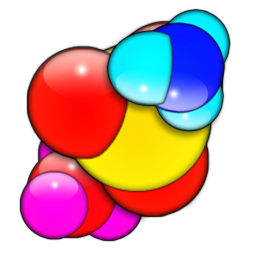-
More relevant video's:
-
Folding@home news & results
-
Introduction
Folding@home (FAH or F@h) is a distributed computing project for disease research that simulates protein folding, computational drug design, and other types of molecular dynamics. The project uses the idle processing resources of thousands of personal computers owned by volunteers who have installed the software on their systems. Its primary purpose is to determine the mechanisms of protein folding, which is the process by which proteins reach their final three-dimensional structure, and to examine the causes of protein misfolding. This is of significant academic interest with major implications for medical research into Alzheimer's disease, Huntington's disease, and many forms of cancer, among other diseases. To a lesser extent, Folding@home also tries to predict a protein's final structure and determine how other molecules may interact with it, which has applications in drug design. Folding@home is developed and operated by the Pande laboratory at Stanford University, under the direction of Vijay Pande, and is shared by various scientific institutions and research laboratories across the world.
-
Tactical Folding Team
We support the research after many relentless diseases like cancer, Alzheimer’s, Huntington’s among several other ‘protein misfolding’ related diseases by donating our computing power to the Folding@home project. F@h simulates protein folding and plays an active role in computational drug design in order to cure life-threatening diseases.
We have started our own folding team in December ’13, and have reached over five million points so far. Why not put those computing horsepowers to good use, to do something amazing? Join us in the fight against cancer – and many other diseases – by donating your computing power to Stanford University, to find cures and save lives!
